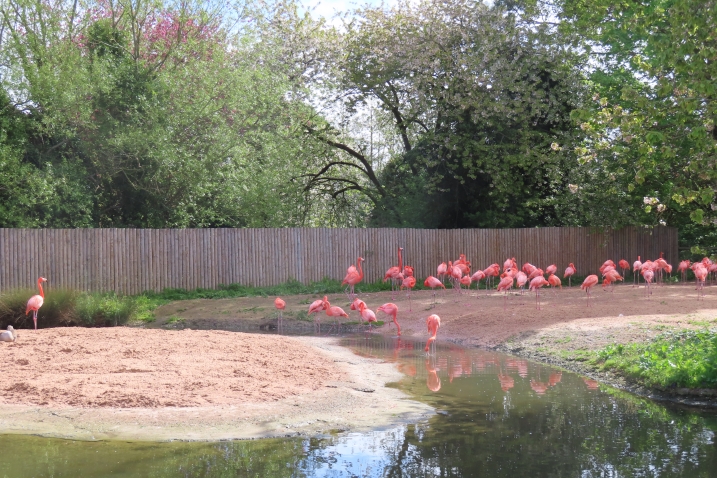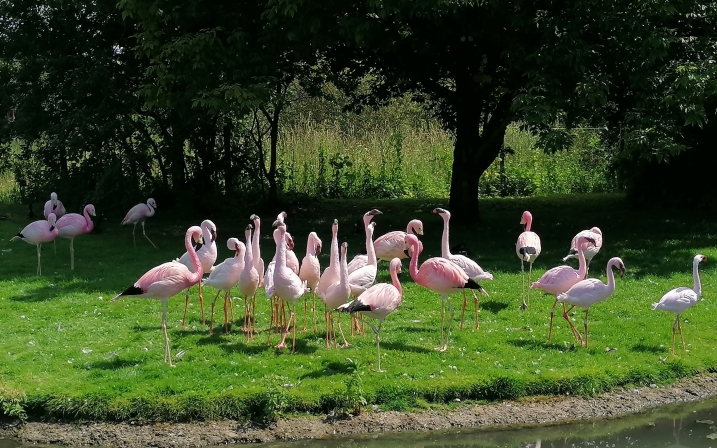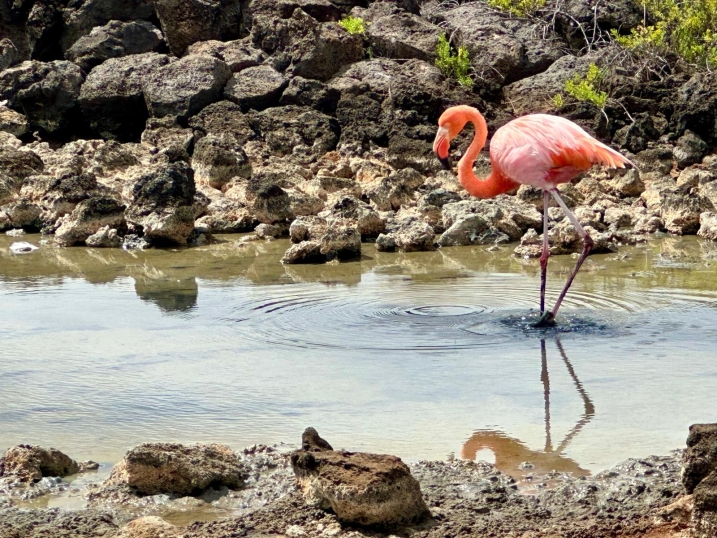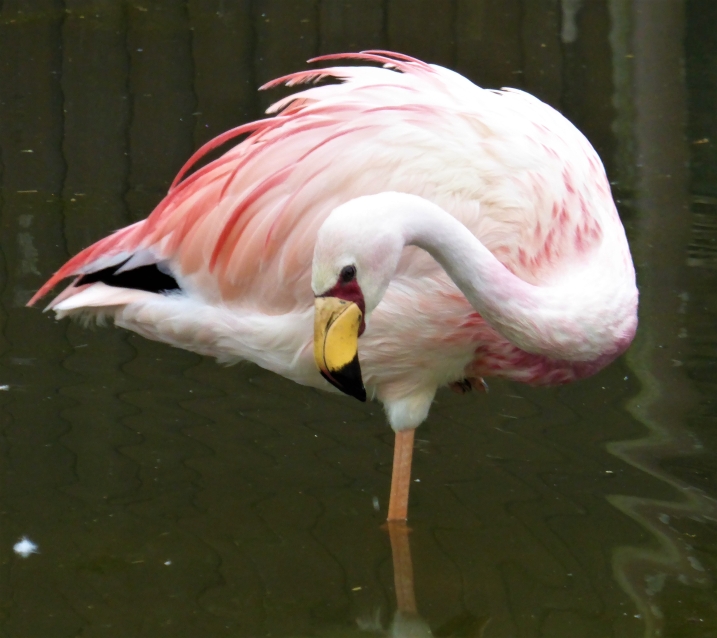Birds of a feather really do flock together
New research from WWT Slimbridge shows that flamingos choose their friends based on similar personalities. It seems that birds of a feather really do flock together and opposites might not attract!
Welcome to the first Flamingo Diary of 2023. In this edition we'll be exploring why flamingo personalities make them very similar to people. Flamingo friends are brought together based on shared characteristics and birds prefer to spend time with others that are similar to their own personality.

Who is who in the Chilean flamingo flock? Birds that like each other share similar behavioural characteristics.
Several years ago, I had a research student from the University of Exeter helping me out with data collection during my PhD. Whilst I was watching the birds to map out their social relationships, I noticed that individuals within their flocks seemed to be consistent in how aggressive or how confident or how shy they were. In human terms, this would be personality. The consistent behavioural traits, actions and body language displayed by different individuals. We use personality in all our day-to-day interactions with others. It helps us modify and adapt these social interactions, so they are most appropriate to the circumstance and other people involved. Many different animal species display personality, especially if they are highly social species that organise their lives within a complex community. Therefore, it is probably not that surprising that flamingos show individual differences in personality.
Back in 2014, Finn my MSc Animal Behaviour student, measured any effect of personality in the Caribbean and Chilean flamingo flocks at WWT Slimbridge. I have been using a method called social network analysis to understand the “friendships” that exist within the WWT flamingo flocks. By categorising the different types of personality, Finn was able to see if these predicted the network that existed within each flock. Did birds spend time with others that were of a similar personality type to their own? Based on how they interacted with others in the flock, each flamingo’s personality was described as aggressive, submission, and outgoing (i.e. likely to be confident enough to go and explore by themselves). Being very visual in their actions and behaviours, it was relatively straightforward to work out what was performing each of our personality types.

You can see the different personalities in the images above. On the left are several aggressive birds, shouting at each other with raised feathers. In the middle is a submissive bird (opposite of aggressive), with sleeked feathers, trying to not get noticed. On the right is an exploratory or confident bird. One that is happy to "go out alone" and do its own thing.

Finn collects data on the WWT Slimbridge Chilean flamingos.
The results of this study showed that flamingos in both the Caribbean and Chilean flocks formed friendships with others that had the same personality type as they did. In the Caribbean flamingo flock, personality also predicted the outcome of social interactions, such as fights with other birds, but not in the Chilean flamingo flock. Flamingos also displayed a concept called “social support”, which is where birds get help from their friends when they are in difficult situations and benefit from the investing time in the relationships that they form. There was no difference in how male and female flamingos displayed personality, suggesting this is very much an individual bird characteristic.

These “flamingo cliques” likely give benefits to individual birds who know who they are compatible with and can socialise accordingly. Therefore, flamingos don’t waste time and energy trying to share space and resources with others that they are incompatible with. Choosing friends by personality makes a flamingo more comfortable and less stressed. It’s the same as in humans; we are most relaxed when we have control over who we socialise with because we know we are going to get along with those around us.

Birds that spend time in pairs or trios, and are consistently seen together on many different occasions are likely to be the best of friends.
Finn worked very hard on her data collection, observing the birds across spring and summer 2014. This extended period of observation allowed her to see different birds, and their behaviour, multiple times. This gives us confidence in the accuracy of these personality categories and how birds display them. although flamingos are familiar to us, there is still a lot we have to learn about their biology and behaviour, how they organise their flocks and why they are social in the first place. But this research has demonstrated that we need to ensure that flamingos have choices in their flocks to find friends with other like-minded birds.
You can see the full results of this study in Nature Scientific Reports.



